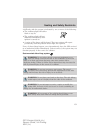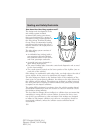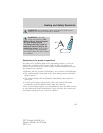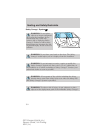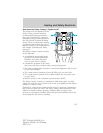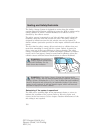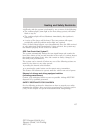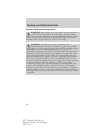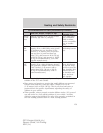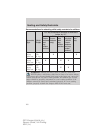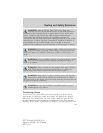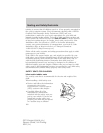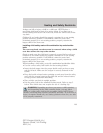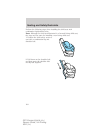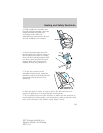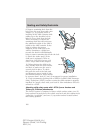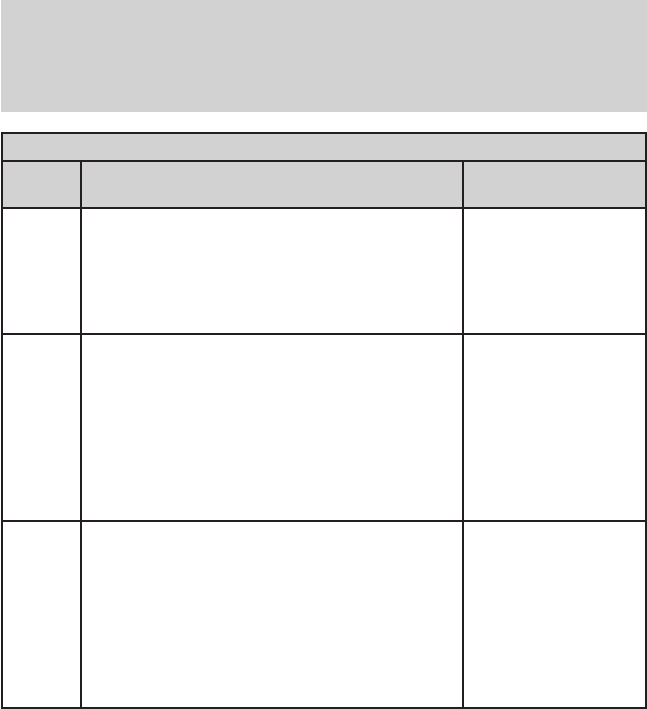
Recommendations for Safety Restraints for Children
Child size, height, weight, or age
Recommended
restraint type
Infants
or tod-
dlers
Children weighing 40 lb (18 kg) or less
(generally age four or younger)
Use a child safety
seat (sometimes
called an infant
carrier, convertible
seat, or toddler
seat).
Small
chil-
dren
Children who have outgrown or no longer
properly fit in a child safety seat (gener-
ally children who are less than 4 feet
9 inches (1.45 meters) tall, are greater
than age four (4) and less than age
twelve (12), and between 40 lb (18 kg)
and 80 lb (36 kg) and upward to 100 lb
(45 kg) if recommended by your child
restraint manufacturer)
Use a belt-
positioning booster
seat.
Larger
chil-
dren
Children who have outgrown or no longer
properly fit in a belt-positioning booster
seat (generally children who are at least
4 feet 9 inches (1.45 meters) tall or
greater than 80 lb (36 kg) or 100 lb
(45 kg) if recommended by child re-
straint manufacturer)
Use a vehicle
safety belt having
the lap belt snug
and low across the
hips, shoulder belt
centered across
the shoulder and
chest, and seat-
back upright.
• You are required by law to properly use safety seats for infants and
toddlers in the U.S. and Canada.
• Many states and provinces require that small children use approved
booster seats until they reach age eight, a height of 4 ft 9 in.
(1.45 meters) tall, or 80 lb (36 kg). Check your local and state or
provincial laws for specific requirements regarding the safety of
children in your vehicle.
• When possible, always properly restrain children twelve (12) years of
age and under in a rear seating position of your vehicle. Accident
statistics suggest that children are safer when properly restrained in
the rear seating positions than in a front seating position.
Seating and Safety Restraints
159
2011 Escape Hybrid (ehv)
Owners Guide, 1st Printing
USA (fus)



